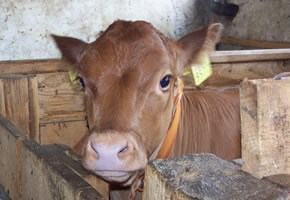BY LIZ FLEMING
So you bought a wooden carving in Costa Rica - and it's going
to look great in the living room. If you can get it home, that
is.
It's not a matter of fitting it in your bag - you can probably
have it packed at the shop where you bought it. The more
serious issue is declaring it when you return to Canada.
Although most travellers are aware that there are restrictions
regarding the importation of certain products, few of us know
just what we can't bring back - or why.
While it would take many more words than we have here to
provide a comprehensive list, some of the more obvious items
for importation concern include wood products like that carving
for your living room. Exotic woods can harbour bugs such
as termites that could present a serious danger to valuable
forests, so such products have to be declared for inspection.
Some items aren't even up for discussion - such as those
luscious pieces of fruit you just couldn't bear to leave in the
bowl in your hotel room. Because they could also be a
means of importing diseases that could infect the tender fruit
trees at home, eat those goodies in the departure lounge.
Other items that won't pass muster at the customs and
immigration desk include meat, animal products and feathers -
all of which could spread diseases in the Canadian agricultural
world. No matter how great those dried sausages were in
Germany, don't even think of bringing them in without making a
full declaration.
You may also need to think about restricting your movements for
a while when you return to Canada, particularly if you've been
in contact with agricultural animals while on your trip.
The concern you could contribute to the spread of avian flu or
certain other livestock-related diseases is a serious one, so
you may be asked not to go near farmed or zoo animals,
including poultry, for at least five days following your
return. If you've had contact with any wild birds, you'll
need to stay away from farms for at least 14 days following
your return.
Wondering if you can just sneak a couple of things through?
Special tools and highly trained detector dogs are used to find
just the sorts of things you might be thinking about tucking in
the bottom of your suitcase. If you're caught trying to
enter Canada with undeclared food, animals, plants or related
products, your purchases will be confiscated, and you
might face a $400 fine and possibly more serious
prosecution. If you're thinking that these rules sound pretty
restrictive, you're right. Protecting plant and animal life in
Canada is serious business.
Join Sudbury.com+
- Messages
- Post a Listing
- Your Listings
- Your Profile
- Your Subscriptions
- Your Likes
- Your Business
- Support Local News
- Payment History
Sudbury.com+ members
Already a +member?
Not a +member?
Sign up for a Sudbury.com+ account for instant access to upcoming contests, local offers, auctions and so much more.
